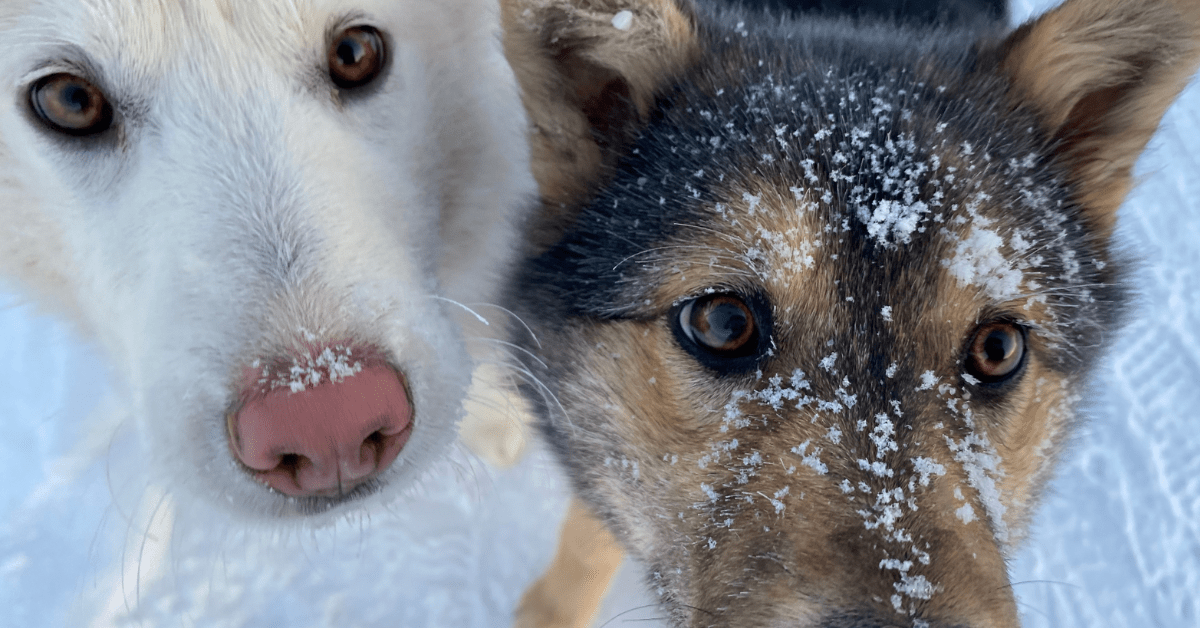OTTAWA, ON, June 6, 2024 - Veterinarians Without Borders North America/Vétérinaires Sans Frontières Amerique du Nord (VWB) is thrilled to announce the launch of its first ever Rabies Awareness and Prevention Education Program, a rabies awareness education kit designed for Nunavut schools. This project is funded by the Canadian Food Inspection Agency. The curriculum, designed for students in grades five and six, includes three 45-minute lessons accompanied by PowerPoint presentations, handouts, and an exit ticket so that educators can provide feedback on the program’s effectiveness. The program’s structure and lesson plans were developed in partnership with an educator who has experience teaching in Nunavut, along with input from other northern educators. As part of VWB’s Northern Animal Health Initiative (NAHI), this educational program can be used by educators in northern communities, with the primary goal of educating students and community members about preventing the spread of rabies and protecting themselves and community animals from exposure. The program is the first of its kind in Nunavut and available in English as well as three dialects of Inuktitut – North Baffin, Kivalliq, and Inuinnaqtun. The curriculum incorporates Ulaayu Learns About Rabies, a children’s book produced by the Newfoundland and Labrador government, Sheshatshiu Innu School, and the Innu Language Project at Memorial University.
“Rabies is a very real threat in the North,” said Marieke van der Velden, VWB’s northern Canada program manager. “Wild animals are drawn to communities in search of food, and while there, can pass along rabies to local dogs and people. As many of us know, rabies is a highly deadly zoonotic disease, that is almost always fatal without swift medical intervention, once contracted,” added van der Velden. “Rabies prevention through education and vaccination is a critical step in helping northern communities stay safe. Our goal is that this program can be used as a tool to help educate young people about recognizing the signs of rabies and how they can play an important role in preventing the spread of infection,” van der Velden added.
Currently, VWB operates temporary veterinary clinics across remote northern communities during the spring and fall. During these clinics, local companion animals can be vaccinated for rabies, along with receiving other critical care. As many animals in northern communities spend significant amounts of time outdoors, increasing their chances of encountering wildlife, vaccinations are a key preventative step. Lack of access to veterinary care across the North continues to create a large barrier to ensuring animals and pet guardians have access to vaccinations and more. At this time, across the entire territory of Nunavut, there is not a single veterinary clinic.
"Managing rabies in Canada requires a One Health approach, where educators and veterinarians play a critical role in creating healthy environments for people and animals. This Rabies Awareness Education Program will have a positive impact that extends well beyond classrooms in Nunavut," said Dr. Mary Jane Ireland, Chief Veterinary Officer for Canada.
Check out the Rabies Awareness and Prevention Education program here.
Media Contact
Laura Eley
Communications & Media Relations Manager
E: laura@vwb.org
C: +1(343) 633-0272
About Veterinarians Without Borders North America/Vétérinaires Sans Frontières Amerique du Nord
Using a One Health approach, Veterinarians Without Borders (VWB) works for, and with, communities in need to foster the health of animals, people and the environments that sustain us. VWB works in Africa and Asia to improve the living conditions of the most disadvantaged rural populations through veterinary and agricultural services, sustainable animal production, training, value chain development and sustainable natural resource management. Additionally, we support remote Northern Canadian communities to improve animal health through temporary spay and neuter clinics, reduce the spread of rabies, and work to create the conditions for long-term, community-led sustainable animal health services.
Learn more at vwb.org.
About the Canadian Food Inspection Agency
The Canadian Food Inspection Agency (CFIA) touches the lives of all Canadians in so many positive ways. Each day, hard-working CFIA employees – including inspectors, veterinarians and scientists – inspect food for safety risks, protect plants from pests and invasive species, and respond to animal diseases that could threaten Canada's national herd and human health. Guided by science-based decision-making and modern regulations, the Agency works tirelessly to ensure access to safe and healthy food in Canada, and support access to international markets for our high-quality agricultural products.
To learn more, visit inspection.canada.ca.
-30-





